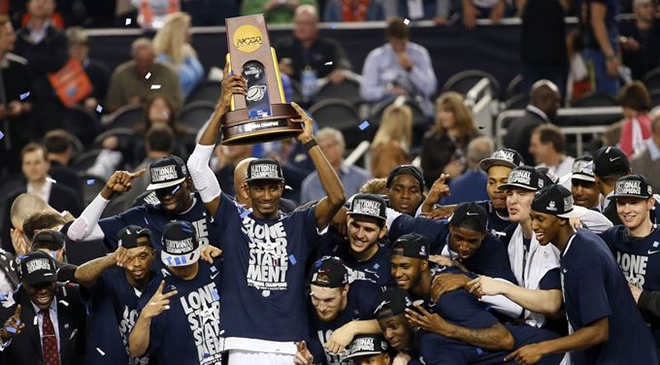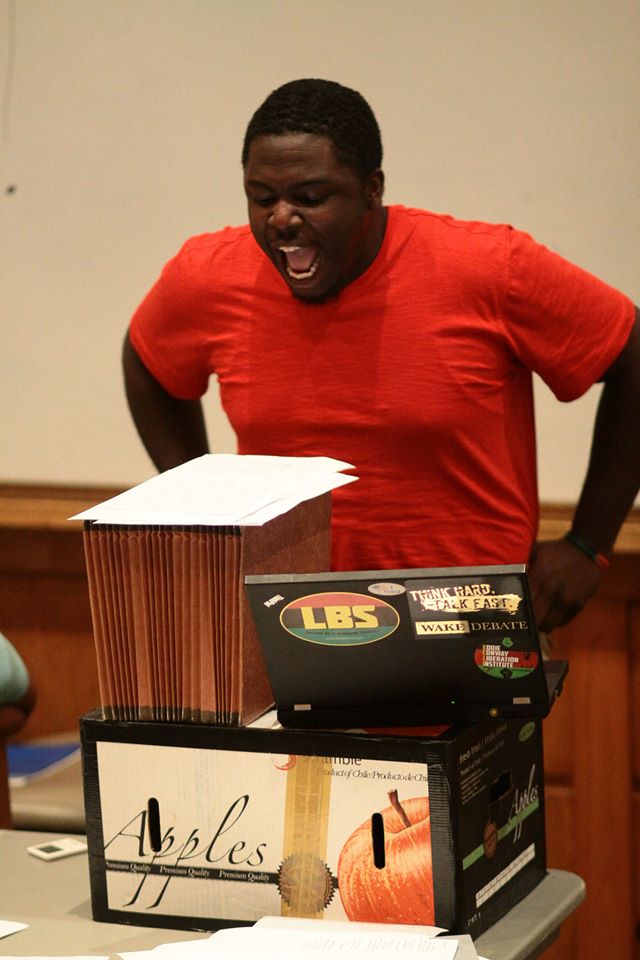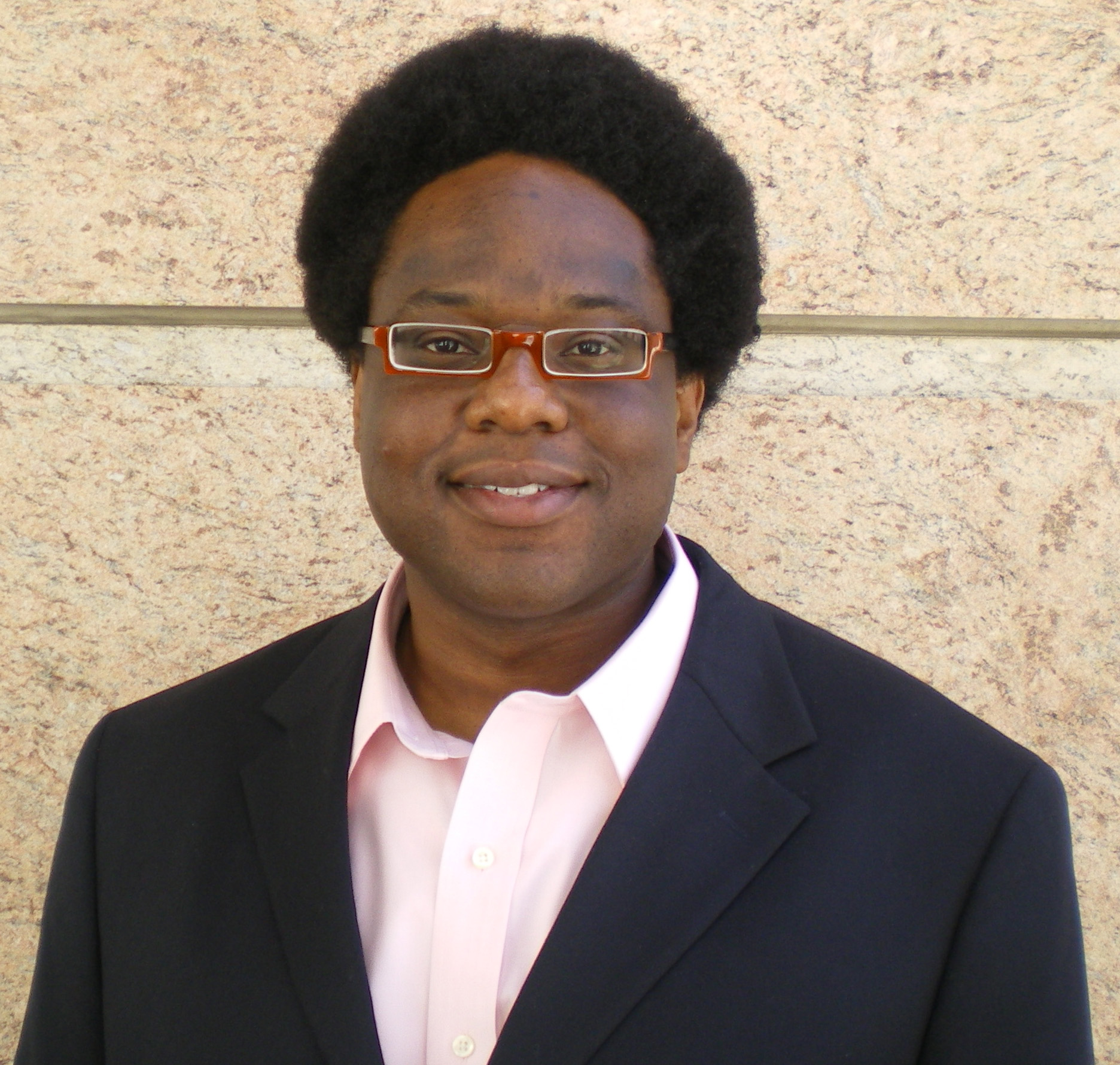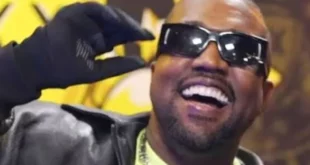Andrew Anglin
Daily Stormer
April 21, 2014

The integration of the races is about destroying White exceptionalism and dragging us down to the level of pre-civilized savages.
Recently, universities have been undergoing constant changes to their standards in order to make them more accessible to low IQ blacks, who are, on the whole, incapable of competing with Whites on an intellectual level, at least to the same degree that we are incapable of competing with them on the basketball court.
Strangely, there has been no attempt to make basketball more accessible to White people.

The latest sickening example of the collapse of the Western educational establishment in the face of overwhelming “diversification” is in the realm of the traditional debate tournament. In order to make it more accessible for blacks, they are allowing teams to refuse to address the issues of the debate, and instead cry about racism to rap instead of debating, or to use profanity and refuse to follow the standardized rules.
From the Atlantic:
On March 24, 2014 at the Cross Examination Debate Association (CEDA) Championships at Indiana University, two Towson University students, Ameena Ruffin and Korey Johnson, became the first African-American women to win a national college debate tournament, for which the resolution asked whether the U.S. president’s war powers should be restricted. Rather than address the resolution straight on, Ruffin and Johnson, along with other teams of African-Americans, attacked its premise. The more pressing issue, they argued, is how the U.S. government is at war with poor black communities.
Ah yes, the debate is about the geopolitical ramifications of unlimited presidential war powers, but nevermind that – if you are black, all debates are really about the emotions of black people.
Does complaining about your hurt feelings as a black person really “attack the premise” of whether or not the President should have unlimited war powers? Ah well, it doesn’t matter anyway, as White people care more about the emotions of black people than anything else, ever, so you cannot lose a national championship simply because you did not discuss the topic of the debate.
In the final round, Ruffin and Johnson squared off against Rashid Campbell and George Lee from the University of Oklahoma, two highly accomplished African-American debaters with distinctive dreadlocks and dashikis. Over four hours, the two teams engaged in a heated discussion of concepts like “nigga authenticity” and performed hip-hop and spoken-word poetry in the traditional timed format. At one point during Lee’s rebuttal, the clock ran out but he refused to yield the floor. “Fuck the time!” he yelled. His partner Campbell, who won the top speaker award at the National Debate Tournament two weeks later, had been unfairly targeted by the police at the debate venue just days before, and cited this personal trauma as evidence for his case against the government’s treatment of poor African-Americans.
Wait, so it was two black teams arguing about how badly black people are treated when they were supposed to be debating presidential war powers?
And they used rap and profanity and refused to adhere by the clock?
Is that what I just read?
Does the Atlantic have no shame at all?
This year wasn’t the first time this had happened. In the 2013 championship, two men from Emporia State University, Ryan Walsh and Elijah Smith, employed a similar style and became the first African-Americans to win two national debate tournaments. Many of their arguments, based on personal memoir and rap music, completely ignored the stated resolution, and instead asserted that the framework of collegiate debate has historically privileged straight, white, middle-class students.
Ah, so here we have precedent. Debate tournaments now exist exclusively for the purpose of soothing the feelings of blacks, the original purpose having been thrown out completely. A black can just go up and start talking about how the whole concept of debating is racist, and he wins by default.
How nice it must be to be black, as your performance and ability is judged exclusively based on the color of your skin.

And what is the next step here? If you can win a debate tournament by refusing to debate the topic and simply claiming that the concept of a debate is racist, can you win a math tournament by saying that math is racist? Can you win a scientific research competition by saying that scientific research is racist?
I see no way that this rule of “black people can win by sayig things are unfair to them” cannot apply to all fields of academia.
Tournament participants from all backgrounds say they have found some of these debate strategies offensive. Even so, the new style has received mainstream acceptance, sympathy, and awards.
Yes, you mean racists find it offensive. Who else but a racist would think black people should not be given awards simply for crying that people are mean to them, or that they think maybe people are being mean to them.
Joe Leeson Schatz, Director of Speech and Debate at Binghamton University, is encouraged by the changes in debate style and community. “Finally, there’s a recognition in the academic space that the way argument has taken place in the past privileges certain types of people over others,” he said. “Arguments don’t necessarily have to be backed up by professors or written papers. They can come from lived experience.”
Translation: it is racist to expect university students to be literate. What with multiculturalism and all, throwing out literacy as a necessary prerequisite of academic success is the only way to remove White privilege.
But other teams who have prepared for a traditional policy debate are frustrated when they encounter a meta-debate, or an alternative stylistic approach in competition. These teams say that the pedagogical goals of policy debate are not being met—and are even being undermined. Aaron Hardy, who coaches debate at Northwestern University, is concerned about where the field is headed. “We end up … with a large percentage of debates being devoted to arguing about the rules, rather than anything substantive,” he wrote on a CEDA message board last fall.
Indeed, to prevail using the new approach, students don’t necessarily have to develop high-level research skills or marshal evidence from published scholarship. They also might not need to have the intellectual acuity required for arguing both sides of a resolution. These skills—together with a non-confrontational presentation style—are considered crucial for success in fields like law and business.
Translation: this new form of “debate” does not require literacy.
Hardy and others are also disappointed with what they perceive as a lack of civility and decorum at recent competitions, and believe that the alternative-style debaters have contributed to this environment. “Judges have been very angry, coaches have screamed and yelled. People have given profanity-laced tirades, thrown furniture, and both sides of the ideological divide have used racial slurs,” he said.
Whoa, whoa, whoa – allowing black people to rap and curse and refuse to discuss the issue of the debate, instead complaining about their feelings, is uncivilized?
It looks like we’ve got ourselves a racist on our hands here.
To counter this trend, Hardy and his allies want to create a “policy only” space in which traditional standards for debate will be enforced. However, this is nearly impossible to do within the two major debate associations, CEDA and the National Debate Tournament (NDT), as they are governed by participants and have few conduct enforcement mechanisms. For instance, while CEDA and NDT’s institutional anti-harassment policy would normally prohibit the term “nigga” as it was used at the recent Indiana University tournament finals, none of the judges penalized the competitors that used it. In fact, those debaters took home prizes.
14 schools expressed interest in sending debaters to Hardy’s proposed alternative tournament, scheduled to occur last month. But after word got out that a group of mostly white teams from elite universities were trying to form their own league, Hardy and his supporters were widely attacked on Facebook and other online forums. Ultimately the competition didn’t happen, purportedly because of logistical issues with the hotel venue. Nonetheless, Hardy wrote in an email that a “toxic climate” has precluded even “strong supporters of ‘policy debate’ from “publicly attach[ing] their name to anything that might get them called racist or worse.”
Yes, how dare this racist scumbag try to hold a new forum following traditional academic standards.
Korey Johnson, the reigning CEDA champion from Towson University, was one of the students who took offense to the alternative tournament. “Separating debate is a bad move,” she said. “With the increase in minority participation came a range of different types of argument and perspectives, not just from the people who are in debate, but the kind of scholarship we bring in.” Her debate partner Ameena Ruffin agreed: “For them to tell us that we can’t bring our personal experience, it would literally be impossible. Not just for black people—it is true of everyone. We are always biased by who we are in any argument.”
Translation: Rap battles, profanity and crying about your feelings are now “scholarship.”
Get used to it.
Liberal law professors have been making this point for decades. “Various procedures—regardless of whether we’re talking about debate formats or law—have the ability to hide the subjective experiences that shape these seemingly ‘objective’ and ‘rational’ rules,” said UC Hastings Law School professor Osagie Obasogie, who teaches critical race theory. “This is the power of racial subordination: making the viewpoint of the dominant group seem like the only true reality.”

So, this is what’s happening. In order to accommodate low-IQ minorities, the academic sphere is throwing out any and all standards of procedure, making it possible for illiterates to succeed. The Atlantic spells this out for you in no uncertain terms, simply adding the spin of “oh no, don’t worry, this is good.”
Here is one of the debates with these blacks. The video is 4 hours long, but just skip through to any part, and you’ll see what the deal here is.
It is almost unbelievable that this is actually, literally happening.
The larger problem is that this applies not only to our institutions of learning, but the whole of society. As we continue to be bullied into accepting the idea that blacks are the same as us, but also in order to be the same we must change the rules and make it easier for them, all of society is being dragged down to the lowest conceivable level.
Detroit is the future of everything.

 Daily Stormer The Most Censored Publication in History
Daily Stormer The Most Censored Publication in History


